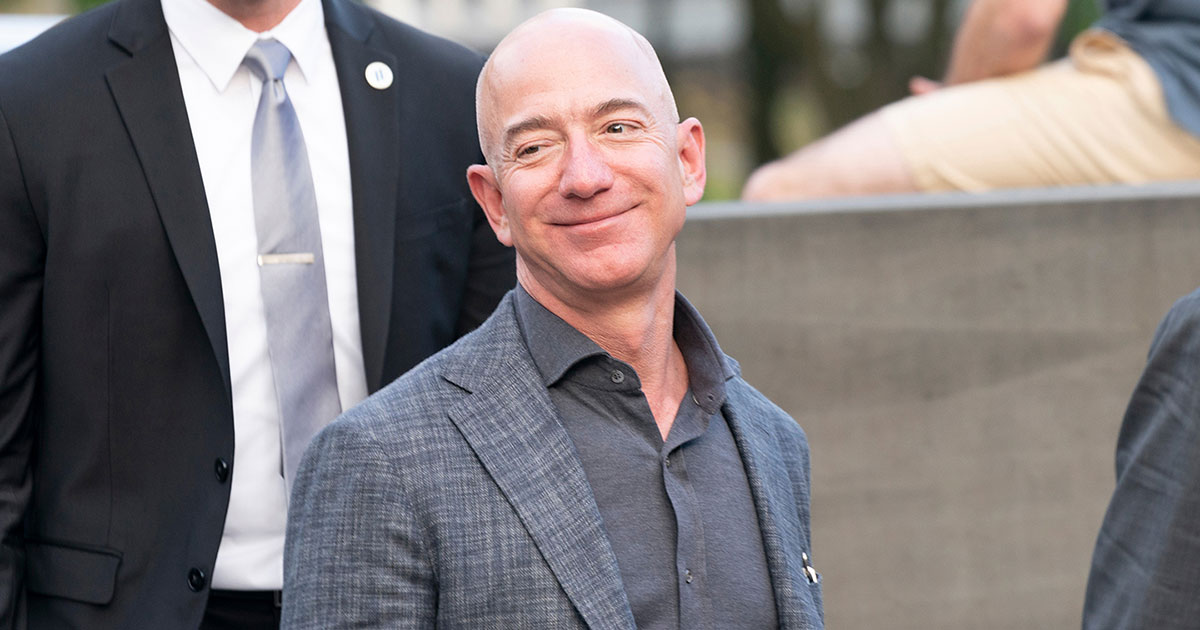Will Jeff Bezos Save the Planet?

The coronavirus pandemic has flipped our world upside down. Yet, another pandemic, as Professor Raj Sisodia describes it, remains ongoing and lurking in the background: climate change.
Look to any corner of the world and you’ll see it: the fires in Australia and the ones that seemingly occur every summer in California, the devastation wreaked by Hurricane Laura along the Gulf of Mexico, and coastal areas across threatened by rising tides from melting ice caps.
Amazon founder and CEO Jeff Bezos, who just became the world’s first person to amass a $200 billion net worth, might be working to change that. Earlier this month, Recode, of Vox, reported that Bezos had established a new company in connection with his February $10 billion pledge to combat climate change.
Actions like these are examples of Sisodia’s co-founded mindset Conscious Capitalism. A way of thinking that focuses on the potential of business to make a positive impact on the world, Conscious Capitalism stresses purpose and people, over making money.
“The companies that do business in this way perform better in the long run,” says Sisodia, co-author of The Healing Organization.
Conscious Capitalism to Create Change
Amazon has faced its share of criticism along the way. Earlier this year, it fired two employees who were outspoken of its climate policies, and workers in the United States and Europe also alleged the business giant wasn’t doing enough to protect them from the coronavirus.
“Ultimately the purpose of wealth is using it to solve problems. It has to be about leaving the world better, not ignoring the challenges you face.”
Professor Raj Sisodia, co-founder of Conscious Capitalism
Sisodia believes Conscious Capitalism can be a means for corporate and culture change, which makes conscious initiatives like Amazon’s more important than ever.
“What’s happened to the planet in the last 100 years? We have almost destroyed the modern ecosystem. Maybe this is Bezos’s time,” Sisodia says. “Capitalism is capable of creating widespread prosperity, it is one of the most powerful tools we’ve ever developed. But, if you use it with low consciousness, “we end up squeezing our employees, tricking our customers, and externalizing burdens on to society, in pursuit of making more money.”
Wealth Is About Solving Problems
In another effort for greater climate change awareness, Amazon in July purchased the naming rights to the now-Climate Pledge Arena, the future home of the NHL’s Seattle Kraken and the WNBA’s Seattle Storm. The arena will be the world’s first that is net zero carbon certified.
“Ultimately the purpose of wealth is using it to solve problems,” Sisodia says. “It has to be about leaving the world better, not ignoring the challenges you face.”
Though many of the details of the new LLC still remain under wraps, Sisodia considers the initiative to be a step in the right direction.
“There are business people who are motivated by values, sometimes it comes to them later, sometimes they start out that way,” Sisodia says. “Conscious Capitalism has to be part of the solution to save the world. Business has to be a key player. Unless we innovate, we cannot find a way forward.
“It’s time for businesses to wake up, grow up, and show up.”
Posted in Entrepreneurial Leadership, Insights





